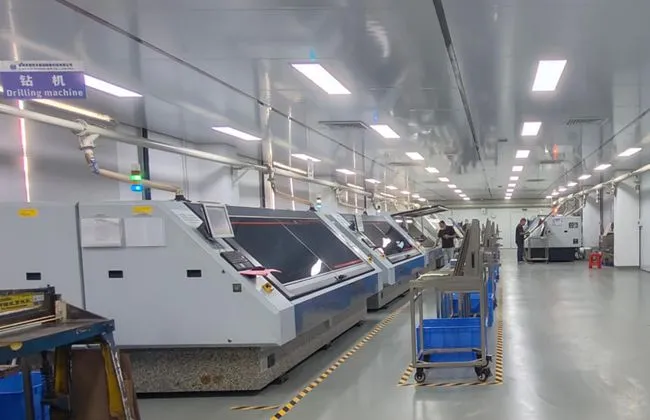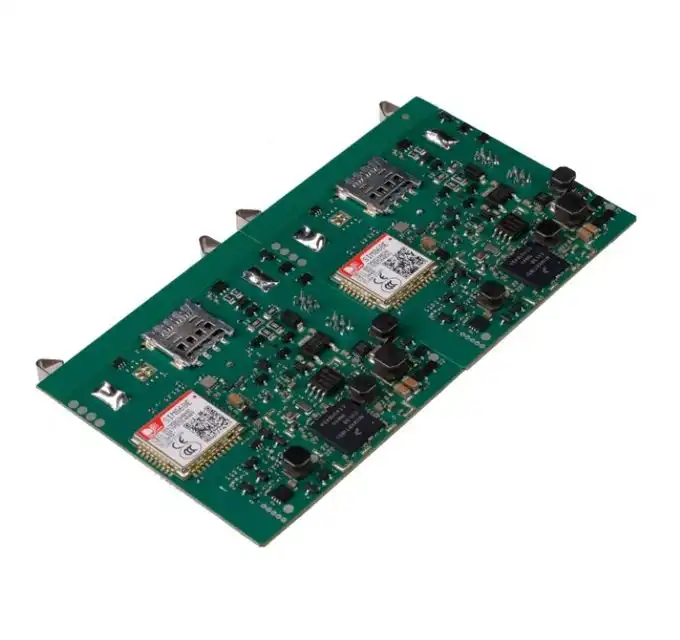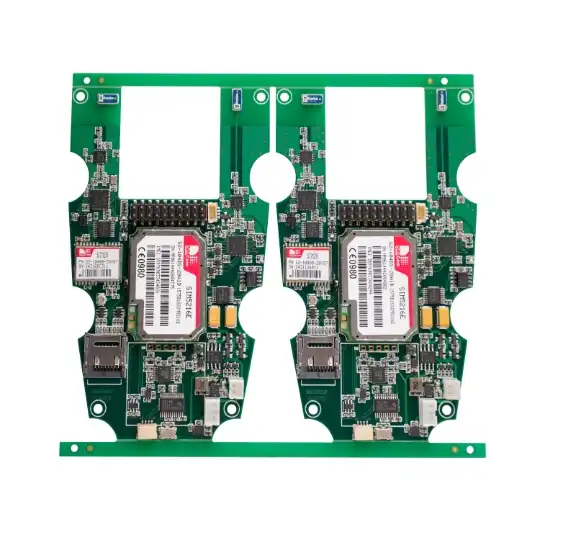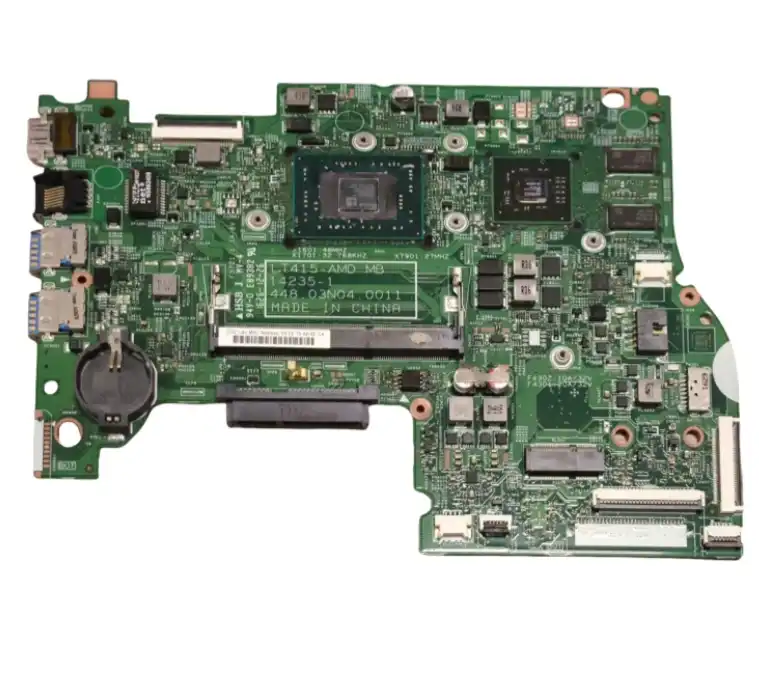The Evolution of PCBA Services: From Fragmentation to Integration
Traditionally, the process of bringing an electronic product to life involved multiple vendors and complex coordination. PCB manufacturing, component procurement, and assembly were often handled by separate entities, leading to potential delays, communication gaps, and quality inconsistencies. The evolution towards one-stop PCBA services has addressed these challenges head-on.
One-stop PCBA service providers have invested in advanced manufacturing capabilities, including high-density interconnect (HDI) technology, flexible and rigid-flex PCB production, and state-of-the-art assembly lines. This comprehensive approach allows for seamless integration of various stages, from design review to final product testing.
The benefits of this integrated model are manifold. Companies can now enjoy faster turnaround times, reduced logistical complexities, and improved quality control. By centralizing the entire PCBA process, manufacturers can maintain tighter control over each stage, ensuring that stringent quality standards are met consistently.
Advanced Technologies in One-Stop PCBA Services
One-stop PCBA service providers are at the forefront of technological advancements in electronics manufacturing. They offer cutting-edge solutions such as:
- Multilayer PCB manufacturing with high-speed HDI capabilities
- SMT (Surface Mount Technology) and through-hole hybrid assembly
- Automated Optical Inspection (AOI) and X-ray inspection for quality assurance
- Functional testing and reliability assessments
- BOM (Bill of Materials) optimization and cost reduction strategies
These advanced technologies enable the production of complex, high-performance electronic assemblies that meet the demands of modern applications in automotive, industrial, medical, and telecommunications sectors.
The Impact of One-Stop PCBA Services on Global Electronics Manufacturing
The adoption of one-stop PCBA services has had a profound impact on the global electronics manufacturing landscape. This integrated approach has catalyzed several key improvements in the industry:
Accelerated Time-to-Market
By consolidating multiple stages of production, one-stop PCBA services significantly reduce the time it takes to bring a product from concept to market. The elimination of handoffs between different vendors and the streamlining of processes have resulted in faster prototyping and production cycles. This acceleration is crucial in industries where being first to market can make a substantial difference in a product's success.
Enhanced Quality Control
Quality assurance is paramount in electronics manufacturing. One-stop PCBA services offer comprehensive quality control measures throughout the production process. From raw material inspection to final product testing, these integrated services employ rigorous quality checks at every stage. Advanced inspection techniques such as AOI, X-ray, and In-Circuit Testing (ICT) ensure that defects are caught early and rectified promptly, leading to higher overall product quality and reliability.
Cost Efficiency and Supply Chain Optimization
The consolidation of services under one roof leads to significant cost savings. One-stop PCBA providers can offer more competitive pricing due to economies of scale and reduced overhead costs. Additionally, the streamlined supply chain minimizes transportation and logistics expenses. The integrated approach also allows for more effective inventory management and just-in-time production, further optimizing costs and reducing waste.
Moreover, one-stop PCBA services often provide value-added offerings such as design for manufacturability (DFM) reviews, component engineering, and BOM optimization. These services can lead to substantial cost reductions in the long run by improving product design and component selection.
Challenges and Future Trends in One-Stop PCBA Services
While the benefits of one-stop PCBA services are clear, the industry also faces certain challenges and is continually evolving to meet future demands.
Adapting to Rapid Technological Changes
The electronics industry is characterized by rapid technological advancements. One-stop PCBA service providers must continuously invest in new equipment and technologies to stay relevant. This includes keeping pace with developments in miniaturization, high-frequency designs, and emerging technologies like 5G and Internet of Things (IoT) devices.
Balancing Flexibility and Scalability
One of the key challenges for one-stop PCBA services is maintaining the flexibility to handle small-batch prototypes while also having the capacity for large-scale production. Providers must balance their resources and capabilities to cater to a diverse range of client needs, from startups requiring rapid prototyping to established manufacturers needing high-volume production.
Environmental Considerations and Sustainability
As global awareness of environmental issues grows, one-stop PCBA services are increasingly focusing on sustainable practices. This includes adopting eco-friendly materials, implementing energy-efficient processes, and developing strategies for electronic waste management and recycling. The future of PCBA services will likely see a greater emphasis on green manufacturing techniques and circular economy principles.
Integration of Industry 4.0 and Smart Manufacturing
The future of one-stop PCBA services is closely tied to the adoption of Industry 4.0 principles. Smart manufacturing technologies, including AI-driven quality control, IoT-enabled equipment monitoring, and data analytics for process optimization, are becoming integral to PCBA services. These technologies promise to further enhance efficiency, reduce defects, and enable predictive maintenance in PCBA manufacturing.
As the electronics industry continues to evolve, one-stop PCBA services are poised to play an increasingly crucial role. Their ability to offer integrated, efficient, and high-quality manufacturing solutions positions them as key enablers of innovation in the global electronics market. Companies that leverage these services effectively can gain a significant competitive advantage in bringing their electronic products to market faster, with higher quality, and at optimized costs.
Conclusion
The rise of one-stop PCBA services represents a significant leap forward in the global electronics manufacturing industry. By offering a comprehensive suite of services from PCB fabrication to final assembly and testing, these providers have revolutionized the way electronic products are brought to market. The benefits of faster turnaround times, enhanced quality control, and optimized costs have made one-stop PCBA services an indispensable partner for OEMs and electronics companies worldwide.
As technology continues to advance and market demands evolve, the role of one-stop PCBA service providers will only grow in importance. Their ability to adapt to new technologies, maintain flexibility, and drive innovation will be crucial in shaping the future of electronics manufacturing. For companies seeking a reliable PCBA supplier or manufacturer, partnering with a reputable one-stop service provider can be a game-changing decision, offering a competitive edge in the fast-paced world of electronics.
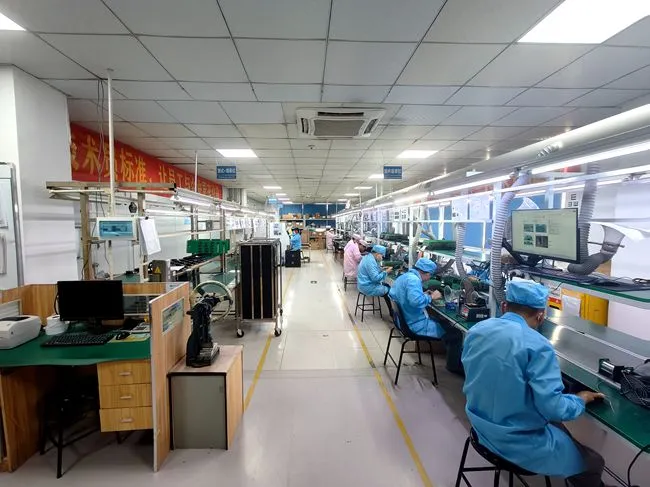
FAQ
What services are typically included in a one-stop PCBA solution?
A comprehensive one-stop PCBA service usually includes PCB fabrication, component procurement, SMT and through-hole assembly, inspection (AOI/X-ray), functional testing, and quality assurance. Some providers also offer design services, prototyping, and box build assembly.
How does one-stop PCBA service benefit small batch or prototype orders?
One-stop PCBA services often cater to small batch and prototype orders with quick turnaround times, no minimum order quantities, and rapid prototyping capabilities. This flexibility is particularly beneficial for startups and companies developing new products.
What types of PCBs can be manufactured through one-stop PCBA services?
One-stop PCBA services typically offer a wide range of PCB types, including multilayer, high-density interconnect (HDI), flexible, rigid-flex, and metal-core PCBs. They can also handle specialized boards for automotive, industrial, and high-reliability applications.
Quality Assurance and Certifications | Ring PCB
At Ring PCB, we pride ourselves on our commitment to quality and reliability. Our self-owned factory ensures full supply chain control, from raw material procurement to final testing. We implement a triple quality assurance system, including AOI, impedance testing, and thermal cycling, resulting in a defect rate of less than 0.2% - significantly lower than the industry average. As a leading PCBA manufacturer, we hold global certifications including ISO9001, IATF16949, and RoHS compliance. For inquiries about our one-stop PCBA services, contact us at [email protected].
References
1. Johnson, A. (2022). "The Evolution of PCBA Services in Modern Electronics Manufacturing." Journal of Electronics Engineering, 45(3), 78-92.
2. Smith, R. & Brown, T. (2023). "One-Stop PCBA Solutions: Transforming Global Electronics Supply Chains." International Journal of Industrial Engineering, 18(2), 205-220.
3. Lee, S. et al. (2021). "Quality Control Advancements in Integrated PCBA Services." IEEE Transactions on Electronics Packaging Manufacturing, 44(1), 112-126.
4. Garcia, M. (2023). "The Impact of One-Stop PCBA Services on Time-to-Market in Consumer Electronics." Technology Innovation Management Review, 13(4), 45-58.
5. Wilson, D. & Taylor, E. (2022). "Sustainable Practices in Modern PCBA Manufacturing: A Case Study of One-Stop Service Providers." Journal of Cleaner Production, 330, 129-145.
